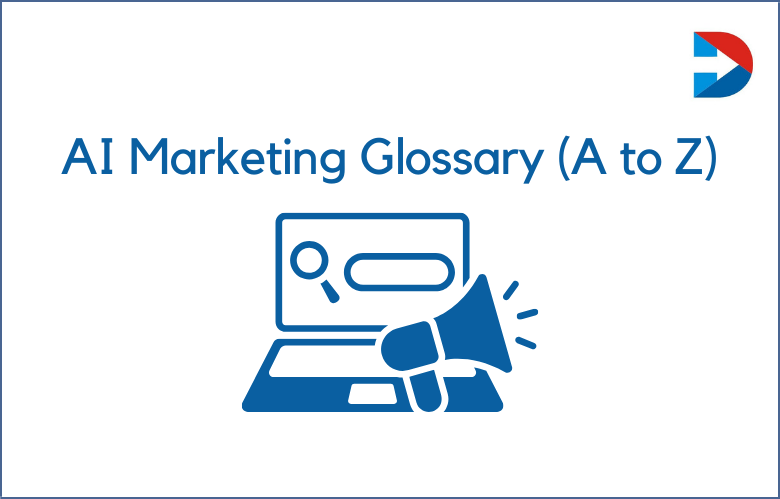
Blogging has been around for decades. From personal journals to corporate marketing, blogs have evolved and played a significant role in the digital revolution.
As businesses shift towards digital marketing, blogging has become essential to establish and maintain an online presence. We’ll deeply dive into what blogging is in digital marketing and how it can be a game-changer for businesses.
What is Blogging in Digital Marketing?
With the constant evolution of technology, digital marketing has become an essential part of any business’s marketing strategy.
Blogging has emerged as a crucial tool in the digital marketing universe. We will discuss what blogging is, its significance in digital marketing, and how it can help businesses increase their online presence.
Blogging is the practice of creating and publishing content online regularly. A typical usually consists of text, images, videos, or other multimedia forms.
It started as an online diary or a personal journal but has evolved into an essential component of digital marketing. Today, businesses use blogs to communicate with their customers, create brand awareness, and build an online reputation.
How to Create an Effective Blog in Digital Marketing
Creating an influential blog in digital marketing requires planning and consistency. Businesses should start by identifying their target audience and the topics that are most relevant to them.
They should also establish a consistent publishing schedule to ensure their readers are engaged and interested in their shared content.
Businesses should focus on creating high-quality, informative, valuable, and engaging content for their audience. They should also use visuals, such as images or videos, to make them more visually appealing and accessible to the readers.
Definition and Importance of Blogging in Digital Marketing
Blogging involves creating and publishing content on an online platform regularly. It could be a personal, corporate, or blog for a specific niche. Digital marketing, on the other hand, uses digital channels such as search engines, social media, and email for advertising, promoting, and selling products and services.
Blogging in digital marketing serves as a tool to drive traffic, increase brand awareness, and generate leads. By regularly publishing relevant content, businesses can establish authority, build trust with their target audience, and boost their online visibility.
Benefits of Blogging in Digital Marketing
Improves SEO:
Blogging is excellent for improving your search engine optimization (SEO). By creating high-quality blog content that includes relevant keywords and internal linking, you can increase the visibility of your website on search engines like Google.
Moreover, search engines often prioritize fresh and unique content, so by regularly creating new you can consistently rank higher in search engine results pages (SERPs).
Builds Brand Authority:
Blogging lets you demonstrate your expertise and knowledge in your industry or niche.
By providing valuable and informative content to your readers, you can establish yourself as a thought leader and build brand authority.
Over time, this can help you gain more trust and credibility with your audience, leading to increased brand loyalty and customer acquisition.
Encourages Social Media Engagement:
Blogging and social media go hand-in-hand, aiming to increase your online presence and engagement.
When you publish a new, you can share it on your social media channels to encourage your followers to engage with your content. Doing this can drive traffic to your website and increase social media engagement, leading to more followers, likes, and shares.
Generates Leads:
Blogging is an excellent tool for lead generation, as it can help you attract more targeted traffic to your website. Creating content relevant to your buyer personas can attract people who are more likely to be interested in your products or services.
By including calls-to-action (CTAs), you can direct your readers to take specific actions, such as signing up for your newsletter, downloading an e-book, or requesting a consultation.
Supports Email Marketing:
Blogging can also be integrated into your email marketing strategy to provide more value to your subscribers.
By including links to your email newsletters, you can share your content with a broader audience and drive more traffic to your website.
You can use your blog content to inspire your email topics, ensuring your content is always fresh and engaging for your subscribers.
Types of Blogs in Digital Marketing
Personal/Corporate Blog:
Personal blogs are great for businesses that want to showcase their expertise or share their experiences. They typically provide a behind-the-scenes look at the company, showcase employees, and share personal insights into the industry.
On the other hand, corporate blogs focus more on the products or services the company offers and are geared toward driving sales. Both blogs can be helpful in branding, establishing thought leadership, and building customer relationships.
News/Events Blog:
A news or events blog might be the way to go if your business is in a constantly evolving industry or has frequent updates.
These blogs provide timely information and updates about the company, industry news, and upcoming events. They can also be a great way to increase brand awareness and give value to your audience.
How-to/ Educational Blog:
Educational blogs are great for businesses that want to provide valuable information to their audience in a more structured and informative way.
Often provide step-by-step guides, tutorials, and other educational content that helps the audience solve a specific problem or learn something new.
How-to blogs can establish your brand as an authority in the industry, increase traffic, and drive conversions.
Lifestyle/Entertainment Blog:
Lifestyle and entertainment blogs are great for businesses that want to connect with their audience more personally.
They often focus on topics like food, fashion, travel, and pop culture and can help businesses build relationships with their customers by providing relatable and engaging content.
Lifestyle and entertainment blogs can increase brand awareness, drive traffic, and build a community around your brand.
Review/Product Blog:
A review or product blog can effectively showcase your business’s products or services.
These blogs typically provide in-depth reviews of products or services, competitor comparisons, and detailed information that helps customers make informed purchase decisions.
Review and product blogs can help establish your brand as an expert in your industry, drive sales, and increase customer loyalty.
Conclusion:
Blogging has become an integral part of digital marketing. It is a valuable tool to drive traffic, generate leads, and build brand awareness.
By creating consistent and valuable content, businesses can establish themselves as thought leaders and build personal connections with their target audience.
Successful blogging requires regular posting, optimized content, and engagement strategies to ensure a successful digital marketing strategy. Are you ready to start blogging for your business?



